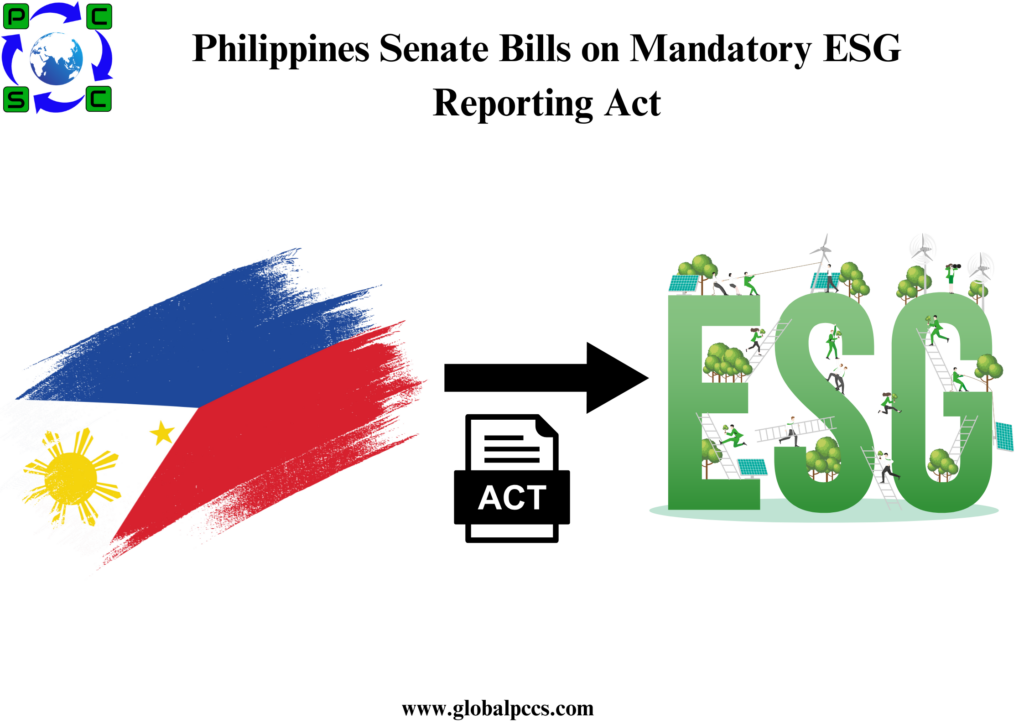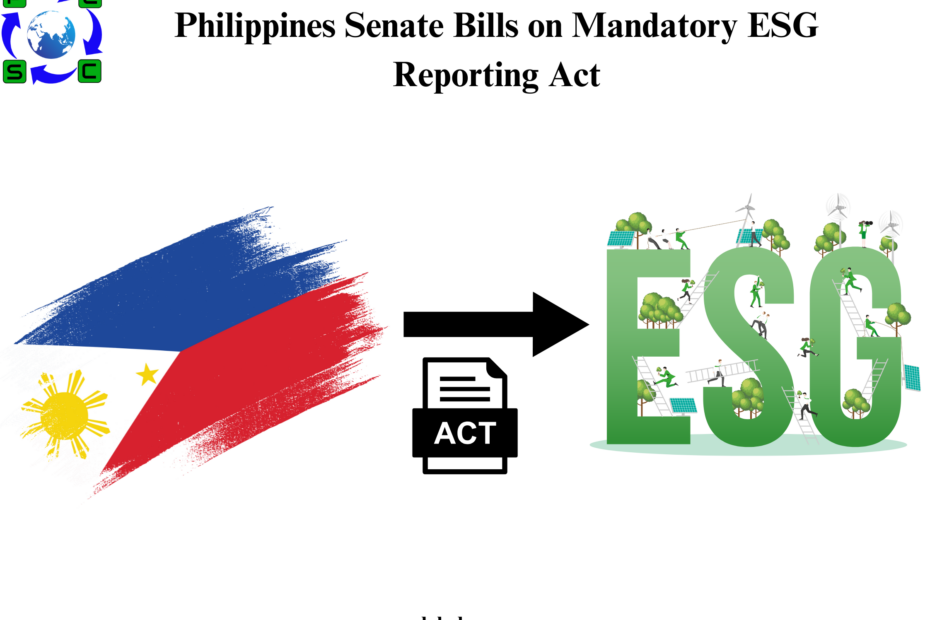 An Act Establishing the Framework Strategy on Sustainability Reporting Covering Environmental, Social, and Governance (ESG) Considerations, Institutionalizing Assurance Therefor, and for Other Purposes (henceforth referred to as the “ESG Reporting Act”) was filed by the Philippine Senate in August of 2024.
An Act Establishing the Framework Strategy on Sustainability Reporting Covering Environmental, Social, and Governance (ESG) Considerations, Institutionalizing Assurance Therefor, and for Other Purposes (henceforth referred to as the “ESG Reporting Act”) was filed by the Philippine Senate in August of 2024.
By creating a strong framework and program for sustainability reporting, this law aims to advance and incorporate ESG concepts into corporate business processes. This bill is currently waiting in the committee after undergoing its first reading.
- Mandatory ESG Reporting
In addition to their financial statements and other reports, all corporations stock and non-stock that are registered with the Securities and Exchange Commission (SEC) are required to file an annual Sustainability Report. Both public and private businesses must comply with this rule, while Government-Owned or Controlled Corporations (GOCCs) are exempt.
ESG-related financial and non-financial data must be included in the report. This entails recording the effects on the environment, social obligations (such as labor practices and community contributions), and governance frameworks (such as leadership transparency and company ethics). The reports must also be available to the public so that interested parties can view them during regular business hours.
- Integration of Sustainability and Financial Reports
Sustainability reports must align with audited financial statements, presenting an integrated view of a company’s financial and ESG impacts. ESG reports should cover the same reporting period as financial statements, enabling stakeholders to gain a holistic view of the company’s financial and sustainable practices within the same timeframe.
- Independent Assurance Requirements
The act mandates Independent Assurance Reports for sustainability disclosures to ensure the accuracy and credibility of ESG data. These reports must be provided by SEC-registered assurance providers who meet SEC-prescribed qualifications, including expertise in ESG standards, independence, and adherence to ethical standards.
- ESG Code of Conduct
The SEC will establish a voluntary ESG Code of Conduct for providers of ESG ratings and data products, potentially aligned with international guidelines. The SEC is also empowered to issue guidelines, exercise oversight, and ensure compliance with this code to support transparency and credibility in ESG ratings.
- Incentives and Penalties
In order to reward companies that succeed in ESG practices, the SEC and other authorities may create a system that streamlines regulatory procedures or provides additional advantages for high compliance.
Penalties range from PHP 20,000 to PHP 400,000 for anyone who certifies a report that contains fraudulent, erroneous, or incomplete information. Assurance providers could face fines of PHP 80,000 to PHP 600,000 if they conspire with company representatives to falsify ESG data. Other infractions could result in disqualification from specific corporate positions, privilege suspension, or fines of up to PHP 1,000,000.








 Authorised IMDS & CDX Training & Consulting partner for
Authorised IMDS & CDX Training & Consulting partner for






